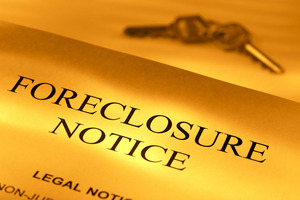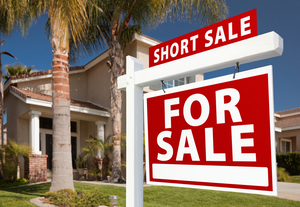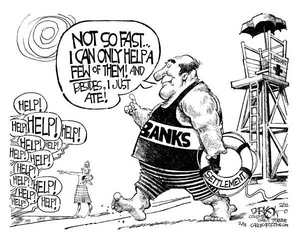 Both the executive and legislative branches of government are making strides as of late to help borrowers get back to a position where they won’t be so underwater on their homes. For now, most of these programs will benefit only those with government sponsored loans. Specifically, the new FHA streamline program will help target borrowers with FHA loans that have been looking to refinance their homes, but to no success.
Both the executive and legislative branches of government are making strides as of late to help borrowers get back to a position where they won’t be so underwater on their homes. For now, most of these programs will benefit only those with government sponsored loans. Specifically, the new FHA streamline program will help target borrowers with FHA loans that have been looking to refinance their homes, but to no success.
Among the new provisions, the FHA will drastically reduce mortgage fees for those borrowers who qualify for this new program starting June 11, 2012. By reducing the amount of fees, a homeowner will have more incentive to refinance because the amount spent on fees will no longer cut into the amount the borrower was scheduled to save.
Another popular provision, the “no-appraisal rule,” will allow homeowners to refinance their homes even if the home is underwater. Put simply, the new program does not require the appraisal of the home. As of today, there are approximately 3.4 million households with qualifying FHA mortgage loans. This program could help each of these households save an average of $250 per month. This program is in addition to the HARP program which is intended to help many struggling homeowners.
By providing an inexpensive method of re-financing, the FHA is preventing the likelihood of foreclosing on responsible homeowners. In order to qualify, you must meet the following criteria: (i) your current FHA mortgage must have been assigned prior to May of 2009; and, (ii) you must be current on your mortgage payments and not have been late over the last 12 months.
What about non-federal loans? Help could be on the way. Three bills were introduced in Congress that could help borrowers with non-federal loans save money through refinancing. The Responsible Homeowners Refinancing Act is designed very similar to the FHA’s streamline program, which is helping as many as 3 million home owners save up to $3,000 a year. According to the Bill’s sponsors, “[T]he legislation would pay for itself . . . by reducing default rates and foreclosures . . . .”
—–
EXTENDED BODY:
Our Real Estate attorneys will work hard to protect your home from being foreclosed on for the foreseeable future. We also have experienced attorneys that can help you with all your refinancing and short sale needs. Don’t hesitate and give us a call today.









